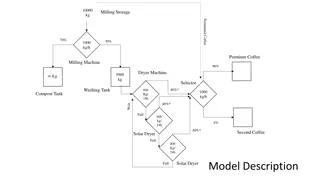
Understanding the Value and Impact of Homework for Student Development
Delve into the purpose and benefits of homework, including its role in enhancing time management, independent study skills, and reinforcing classroom learning. Discover research findings on homework effectiveness and learn practical tips for creating a positive homework environment to support your child's academic journey and mental well-being.
Download Presentation

Please find below an Image/Link to download the presentation.
The content on the website is provided AS IS for your information and personal use only. It may not be sold, licensed, or shared on other websites without obtaining consent from the author. If you encounter any issues during the download, it is possible that the publisher has removed the file from their server.
You are allowed to download the files provided on this website for personal or commercial use, subject to the condition that they are used lawfully. All files are the property of their respective owners.
The content on the website is provided AS IS for your information and personal use only. It may not be sold, licensed, or shared on other websites without obtaining consent from the author.
E N D
Presentation Transcript
Homework and Independent Study Aim for today's session: To explore the value and purpose of homework and how you can best help your child.
Purpose of homework: Develops time management and independent study skills. Reinforces classroom learning. Prepares students for future learning (both academically and personally). Enhances self-discipline and responsibility.
What does the research say? Effectiveness: Studies show that homework can enhance learning (+7 months). Age Dependent: for older students, homework tends to have more positive outcomes. Quality Over Quantity: Research suggests that more meaningful, manageable homework is more effective than excessive amounts. Consistency: Regular homework fosters better learning outcomes than sporadic or irregular assignments.
As a school what do we prioritise? Using well-designed tasks that are linked to classroom learning. Clearly setting out the aims of homework to students. Explicitly teaching independent learning strategies. Providing facilitative feedback to improve student learning.
Homework is not graded in the traditional sense. We do not mark homework with scores or grades. Instead we: How do we Provide feedback on homework? Encouraging reflection Prompt critical thinking Guide improvement with verbal or written comments Encouraging self-assessment Celebrate best practice work
Mental Health and Wellbeing: Overloading children with homework can cause stress and affect their mental health. Encourage breaks, physical activity, and downtime. Balance: Homework should complement, not overwhelm, students' lives. Quality time with family and friends is just as important. The Role of Sleep: Adequate rest is essential for brain function, memory consolidation, and overall health. The Importance of Balance: Homework and Wellbeing
Creating a Positive Homework Environment: How Parents Can Support Homework Effectively? Designate a quiet, well-lit space for studying. Eliminate distractions (e.g., phones, TV). Encourage Responsibility: Help children organise their time and prioritize tasks, but avoid doing the work for them. Establish a good homework routine Be Supportive, Not Overbearing: Ask guiding questions rather than providing answers. Foster problem-solving and critical thinking.
Independent Study: In addition to subject homework, all students are expected to complete independent study each week. This work is set additionally to homework and is not compulsory for all students but is advised for students to be successful and realise their potential. This work can be guided by a teacher, but also provides an opportunity for students to explore areas of learning for themselves and prioritise what they need to do to improve. When guided by teachers, independent study may involve the following types of learning activities: Wider reading Project/research-based tasks Use of IT packages, Apps or other software Use of documentaries, podcasts or other forms of media. Specific revision or exam practice that supports the development of long term memory
Homework and Independent Learning thresholds






















